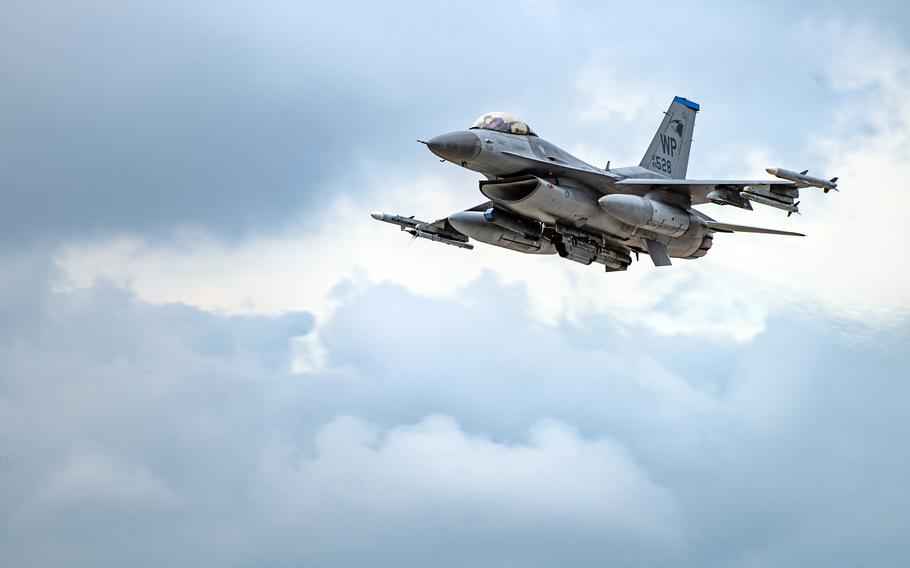
An Air Force F-16 Fighting Falcon takes off from Kunsan Air Base, South Korea, Sept. 27, 2023. (Karla Parra/U.S. Air Force)
SUWON, South Korea — The U.S. Air Force resumed flights on the Korean Peninsula on Thursday, a day after an F-16 Fighting Falcon went down in the Yellow Sea.
All air operations were halted to focus on the search and recovery of the unnamed pilot whose jet crashed during an in-flight emergency at 8:41 a.m. Wednesday, 7th Air Force commander Lt. Gen. David Iverson said in a statement the next day.
The pilot, on a routine flight, ejected safely and was rescued about 50 minutes later, Kunsan Air Base’s 8th Fighter Wing announced at the time.
“I am thankful to report that the 8th Fighter Wing pilot involved in yesterday’s F-16 crash into the [Yellow Sea] was evaluated and treated by medical personnel and is in good condition,” Iverson said.
The incident marked the command’s third F-16 crash in nearly nine months. Iverson said a preliminary investigation of the latest crash found “there are no indications these incidents are related.”
Another F-16 went down into the Yellow Sea on Dec. 11; Iverson said that investigation is ongoing.
On May 6, one of the jets crashed into a farmer’s field near Osan Air Base. Iverson said that investigation is finished but details will not be publicly available.
“The Seventh Air Force, as always, is ready to fight tonight,” Iverson said. “I remain confident in our ability to provide airpower to deter aggression and maintain the armistice, defend [South Korea], and defeat any attack against the [South Korea]-U.S. alliance.”
Iverson, an F-15 Strike Eagle pilot, took command of the 7th Air Force on Tuesday, succeeding Lt. Gen. Scott Pleus, an F-15 pilot who led the organization since 2020.
The 7th Air Force includes the 8th and 51st Fighter Wings in South Korea and is headquartered at Osan Air Base, roughly 35 miles from Seoul.
The mission of the command and its 8,300 service members is to deter North Korean attacks and defend South Korea, according to the Pacific Air Forces.